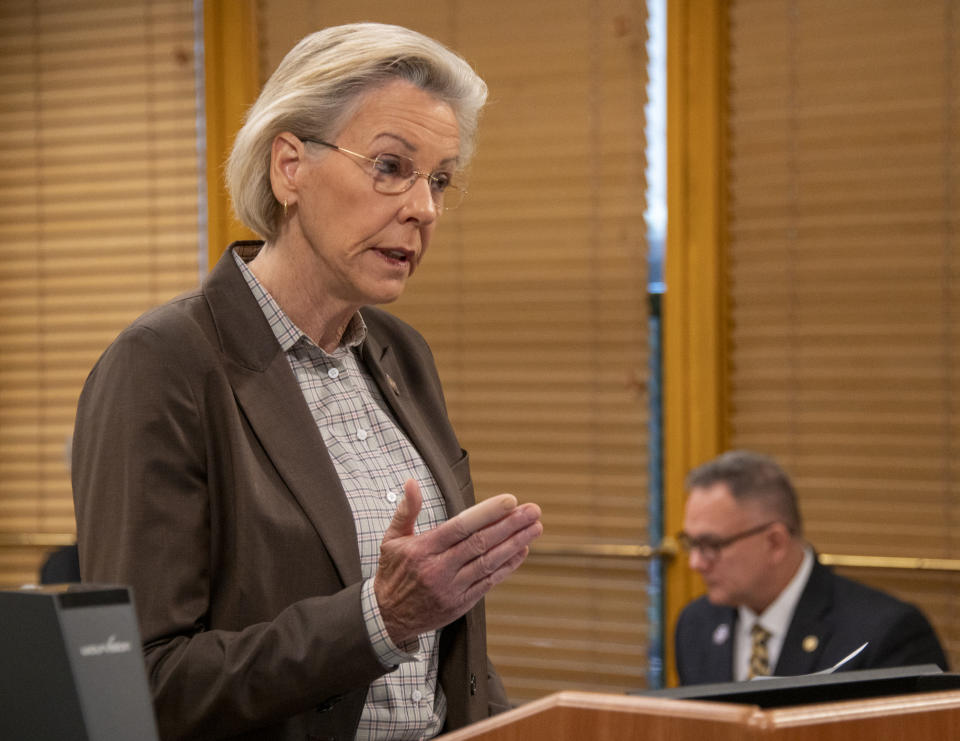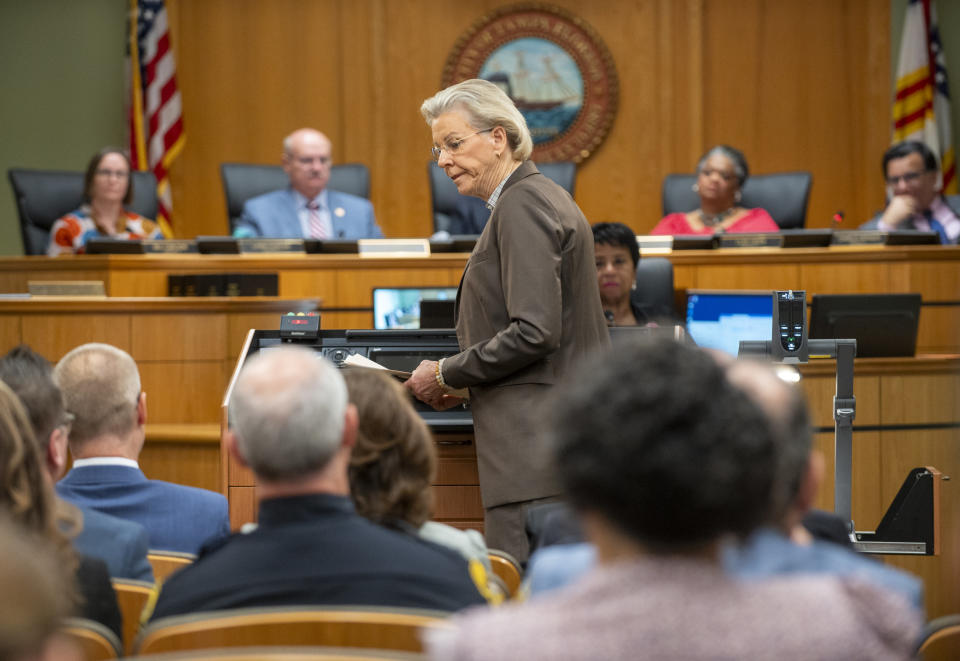Tampa Mayor Jane Castor unveils $1.8 billion budget. Here’s what’s in it.
- Oops!Something went wrong.Please try again later.
TAMPA — Mayor Jane Castor on Thursday proposed what she called “a status quo budget,” maintaining current service levels with little left over to meet the demands posed by an influx of new residents and a backlog of maintenance projects.
“We are in good shape,” Castor, who won reelection last year, said in a speech at Old City Hall. “However, with current levels of revenue, I want to be clear, it will not address many of our gaps and growth challenges.”
In Tampa, which has transformed from sleepy port town to millennial mecca in recent years, housing demand continues to dwarf supply, public transit offerings are bare bones and streets are particularly hazardous for pedestrians and cyclists. Housing and transportation — alongside public safety, climate resiliency and tending to aging infrastructure — continue to be central focuses of city spending, Castor said.
In the last four years, the city witnessed a nearly 40% increase in costs for many goods and services, she added.
While the city will generate additional revenue next fiscal year thanks to rising property values, the increase is $7 million less than initial projections — already a conservative estimate, said the city’s Chief Financial Officer Dennis Rogero. Property values are expected to increase at half the rate as the year before.
Overall, “revenues have risen by about the same amount as our costs,” the mayor said Thursday. “So, we are not expanding.”
It was a markedly different tone from last year, when Castor proposed a double-digit property tax rate increase she said was a “critical investment” to tackle long-deferred needs.
“Burying our head in the sand isn’t going to improve any of these issues,” she told the Tampa Bay Times last year. The City Council axed the proposal, many citing the inopportune timing as residents were gripped by the pinch of inflation, car insurance increases, a statewide property insurance crisis and growing utility bills.
Castor did not consider proposing a tax rate hike this year, a city spokesperson told the Times.
Before the City Council Thursday, she echoed past statements that it was “critical” that the county pass the half-penny sales tax on the ballot this November. Still, she celebrated the city’s financial outlook, citing low unemployment, a cooling housing market and shrinking inflation.
City police officers, firefighters and other unionized employees will receive a 4.5% salary boost in the next year. Others including managers and supervisors will receive a 3% increase. The mayor is still mulling salary adjustments for directors and administrators.
To plug holes and cover costs on larger projects, city staff said they continue to aggressively pursue federal and state grants. Castor thanked both President Joe Biden and U.S. Rep. Kathy Castor, D-Tampa, for steering funds toward meeting some of the city’s most pressing needs.
Last month, the city announced receipt of a $24-million-dollar federal grant for the reconstruction of a seawall, road resurfacing, sidewalk construction and tree planting in Palmetto Beach, a historic neighborhood along the shores of McKay Bay.
A citywide mobility plan released last year brought Tampa’s shortcomings into sharp focus: It is more auto-centric than peer cities, its roadways are more deadly, and housing and transportation costs are higher.
Over the coming months, the City Council will workshop the budget proposal and hold public hearings for community feedback. The budget year starts Oct. 1.


